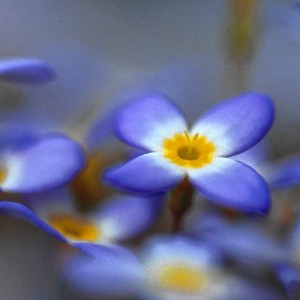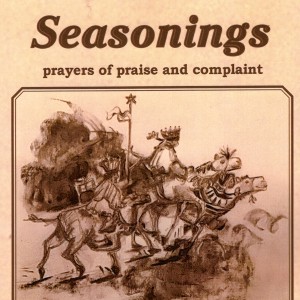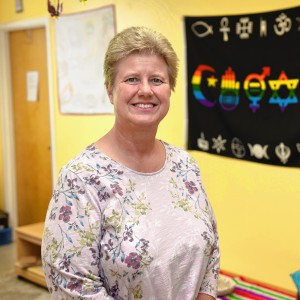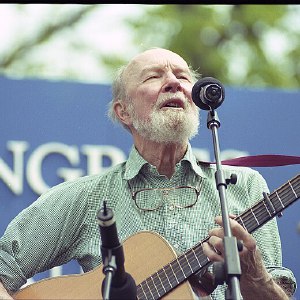The remedy is in your own backyard: Conway resident enhances health through herbal medicine
|
Published: 02-13-2024 10:53 AM
Modified: 02-13-2024 3:48 PM |
Lynn Golan’s Conway home and her Greenfield work space are both filled with materials and tools related to herbalism, yet her early life gave no hints that this would become her chosen path. While growing up near New York City, Golan did not grow a garden, nor did she tend plants; in college, she studied fine arts and philosophy. But when a friend introduced her to natural healing concepts, Golan began considering herbalism as a possibility for personal and professional focus.
Since 2017, Golan has offered bioregional herbal remedies and consultations through her business, The People’s Gold. She engages in reciprocal relationships with plants, and incorporates herbal medicines when helping people strengthen their bodies and minds. And for those looking to celebrate Valentine’s Day in a holistic way, starting tomorrow, people may register for a day-long herbal education symposium to be held May 11 in Montague, led by Golan and another local herbalist, Laura Torraco of Sage Green Apothecary.
The Western Mass Herbal Symposium will offer many forms of information about herbal medicines, and people are invited to participate whether the concept is new to them or whether they’re advanced in terms of skill and knowledge. The event, at The Montague Retreat, will include plant walks in addition to classes.
In her early 20s, Golan pondered what path her life might take. “A turning point for me was studying at the Northeast School of Botanical Medicine in Ithaca, New York,” said Golan. “Ithaca is a progressive and special community, very artistic and conscientious in terms of the earth.” The school she attended is run by a man Golan considers remarkable: “His name is 7Song, and he’s run the school out of his home for about 20 years. He’s well known in the herbal world and contributes significantly to the body of knowledge about herbal medicine.”
The school’s website reveals how rich and beautiful the world of herbalism can be. “There are many herbal education programs, large and small; they’ve really proliferated,” said Golan, “so I had a lot of choices.” But she preferred 7Song’s small school to programs at large universities and institutions.
“I was drawn to 7Song’s mission,” said Golan, “and his ethics, curriculum, and way of teaching. He shares accessible herbalism as applied through first-aid and clinical work, and participates in a free clinic that integrates traditional and herbal modalities with modern medicine.” Golan admires that the free clinic in Ithaca is available to people who wouldn’t otherwise have access; she’s parlayed that admiration into her own involvement with the Conway-based People’s Medicine Project.
Some herbalists lean toward growing their own herbs; others prioritize wildcrafting, which involves harvesting and gathering in the wild. Many do both, as is the case with Golan. While studying botany and medicine making at the Ithaca-based school building, she and her 20 classmates embarked on three school-sponsored field trips that enabled them to experience various bioregions. “Our class traveled to the Appalachians, specifically North Carolina, and to Oregon. We also went to the heart of the Adirondacks, where we stayed in and around a family home for five days, wildcrafting on their land. It was wonderful: the family fed us and took us on adventures.” There, Golan and her classmates learned to process cherry tree bark for medicine.
As part of their road trips, the students stopped along the way to engage in wildcrafting, including in Idaho and Washington State; the journeys resulted in students forming strong relationships. And learning about bioregional concepts exposed them to the advantages of prioritizing local sources of herbal medicines. “When operating within a landscape that’s familiar to me, I can obtain plants directly in a way that’s respectful and in reciprocity,” said Golan. “I’m sourcing from my environment, from a plant community I have a relationship with.”
Article continues after...
Yesterday's Most Read Articles
 Ja’Duke eyes expansion to Greenfield
Ja’Duke eyes expansion to Greenfield
 My Turn: Quabbin region will never see any benefits from reservoir
My Turn: Quabbin region will never see any benefits from reservoir
 The cool new ‘underground’ spot in town: Le Peacock in Shelburne Falls delivers on colorful décor, people, food and cocktails
The cool new ‘underground’ spot in town: Le Peacock in Shelburne Falls delivers on colorful décor, people, food and cocktails
 Renovation of vacant Greenfield house will help those ‘priced out’ of home ownership
Renovation of vacant Greenfield house will help those ‘priced out’ of home ownership
 Attorney seeks dismissal of RI man’s DUI charges in Northfield crash that injured seven
Attorney seeks dismissal of RI man’s DUI charges in Northfield crash that injured seven
 As I See It: Between Israel and Palestine: Which side should we be on, and why?
As I See It: Between Israel and Palestine: Which side should we be on, and why?
Golan noted that “for the biggest herb providers who sell online, it’s a global trade. But that never made sense to me: why should I source nettles from Bulgaria when it grows abundantly in our hilltowns?” Harvesting locally, she says, “helps prevent vast carbon expenses. I can do it responsibly and offer gratitude.” She also believes there’s a “huge impact (with local products) in terms of potency of the medicine and products. It creates a direct, clean, and honorable line from soil to seed to plant to humans.”
While Golan does not consider keeping it local a hard and fast rule, “I think part of the magic of herbal medicine is that it creates and bolsters relationships between people and the earth. It’s just a different feeling, when something is local: it helps tether you to the land when you know a plant was harvested at an organic farm one town over, or by someone you love, or that you yourself hiked to a place and picked a few handfuls.” Golan believes that this deep connection to the land is “why plants work.”
Golan recognizes that, in North America, it’s important to honor Indigenous knowledge and wisdom. She also points out that “for all of us who are transplants, our people were indigenous to other places and had their own relationships with plants. That applies to all of us!” Modern medicine, Golan observes, “is only a few centuries old. All peoples of our earth had relationships with their lands that included gratitude and reciprocity rituals.”
On her own piece of rented land, Golan grows a lot of what she uses in her products, including tulsi (also known as holy basil), thyme, oregano, calendula, marshmallow, and anise hyssop. Her current growing space is about 20-by-20 feet. “I’ve grown over 50 species in a garden that’s even smaller than the one I have now,” she said. “You can grow a lot of herbs in small spaces.” Golan says the soil where she grows is very good, and that she’s grateful to the person whose land she grows on.
Golan’s plants thrive despite the fact that there’s no external water source. “They’re heavily mulched and supported by rain. I like to say that herbs are the easiest plants to grow. And most perennials just grow bigger and bigger.”
When it comes to wildcrafting close to her home, Golan chooses plants and materials “that are in abundance and accessible, like goldenrod and birch bark.” She rarely wildcrafts on state lands or in parks: “That’s not quite as ethical, in my opinion,” she said. “In those places, people want to experience nature’s wild ways.” Golan doesn’t wish to take plants that other people might enjoy observing and being around. “I also want to be considerate of others who do wildcrafting. I never take very much, in the hopes that there will be enough for everyone, including animals and the ecosystem.”
Those who’ve heard that goldenrod is a common allergen may wonder why herbalists would collect it, yet in truth it’s not the goldenrod itself, but another plant that often grows alongside goldenrod, that gets people sneezing and wheezing. “Ragweed is the likely culprit,” said Golan, “and goldenrod can be the remedy, because it’s an antihistamine and brings down inflammatory reactions.”
Golan noted that “a beautiful aspect of plant intelligence is that the solution often grows right next to the problem. We’re lucky that goldenrod grows in abundance around us, because it’s great for UTIs (urinary tract infections) and useful in detoxing. It’s a natural form of CoQ10 (a compound that helps generate energy in our cells).”
Birch bark, ubiquitous in New England, “tastes amazingly sweet,” said Golan, “like root beer. The best time to harvest it is in the spring, when it’s most flavorful and medicinal in terms of being anti-inflammatory and reducing pain.” And willow bark is famously the original source of modern-day aspirin. “Willow is one of those plants that, the more you cut it back, the more it will grow back strongly. Willow, harvested properly, grows back tenfold.”
In her private clinical practice, Golan helps clients with acute and chronic ailments. People seek her out for a variety of issues, chief among them hormonal, digestive, and mental health concerns. “And we use not just herbal medicines,” she said. “We view situations through an integrated holistic lens.” Golan consults with people in person at her studio, online, and over the phone.
For information about the May 11 Western Mass Herbal Symposium or about The People’s Gold, readers may contact Lynn Golan: www.thepeoplesgold.co or @thepeoplesgold.
Eveline MacDougall is the author of “Fiery Hope” and a musician, teacher, artist and mom. To contact: eveline@amandlachorus.org




 Speaking of Nature: Indulging in eye candy: Finally, after such a long wait, it’s beginning to look like spring is here
Speaking of Nature: Indulging in eye candy: Finally, after such a long wait, it’s beginning to look like spring is here Celebrating ‘Seasonings’: New book by veteran preacher and poet, Allen ‘Mick’ Comstock
Celebrating ‘Seasonings’: New book by veteran preacher and poet, Allen ‘Mick’ Comstock Faith Matters: How to still the muddy waters of overthinking: Clarity, peace and God can be found in the quiet spaces
Faith Matters: How to still the muddy waters of overthinking: Clarity, peace and God can be found in the quiet spaces A time for every purpose under heaven: Free sing-a-long Pete Seeger Fest returns to Ashfield, April 6
A time for every purpose under heaven: Free sing-a-long Pete Seeger Fest returns to Ashfield, April 6
